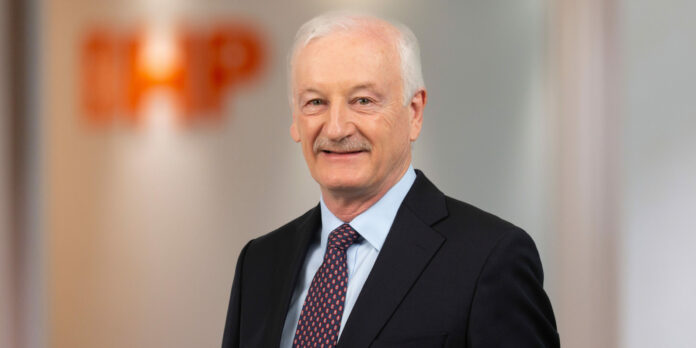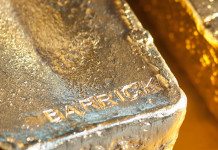
WHY do retired executives take nonexecutive positions? As a way of staying in the game, because of the handy fees, or just for a change of pace?
It doesn’t appear to be the latter for Ian Cockerill, a former CEO of Gold Fields, who in 2022 found himself conspicuously exposed as a board member of Russia-focused Polymetal International following the invasion of Ukraine.
Cockerill was thrust back into the limelight this month when he was appointed CEO of Endeavour Mining, a West African gold miner that had sacked its CEO of seven years, Sébastien de Montessus, on allegations of “serious misconduct”, which De Montessus denies.
According to an Endeavour investigation, De Montessus gave an irregular payment instruction for $5.9m in 2021. The instruction was issued after an asset sale, thought to relate to the Agbaou mine in the Ivory Coast, had taken place. De Montessus responded by saying in an interview with the Financial Times that he had instructed a creditor to offset a sum owed to Endeavour to pay for essential security equipment to protect the mine’s partners and employees in a conflict zone. He acknowledged a “lapse in judgment” for not informing the board, but said the transaction did not benefit him financially.
There are many mercenary groups. There are quite a few South African groups that effectively run mines in the region.
However, De Montessus has declined to name the security company involved. This invites speculation that it could be one of the many “private” security firms that proliferate in West Africa. The most infamous of these is Russia’s Wagner Group, whose power base is predominantly in Mali and Burkina Faso, not the Ivory Coast (though Endeavour until recently obtained a significant portion of its gold from Burkina Faso). “There are many mercenary groups,” says an analyst. “There are quite a few South African groups that effectively run mines in the region.”
De Montessus also rejected a separate investigation that had taken place and, in the words of Endeavour, related “to his personal conduct with colleagues”. It had not yielded results, because there were no allegations to answer, De Montessus said. Despite these protestations, De Montessus finds himself considering his legal options while Cockerill gets on with the business of restoring Endeavour’s battered reputation.
SA connections
One interesting sidelight of the crisis at Endeavour is its South African connections. Cockerill is backed by Endeavour chair Srinivasan Venkatakrishnan, who was previously CEO of AngloGold Ashanti. In another South African link, the firm’s CFO is Guy Young, a former employee of Anglo American and Scaw Metals.
Ironically, Endeavour previously had pristine ESG credentials. In October 2023, Sustainalytics, Morningstar’s ESG ratings company, upgraded Endeavour’s rating to low risk, which positioned the company as the top-ranked gold producer. De Montessus’s firing “could potentially impact Endeavour’s ESG ratings”, says Raj Ray, an analyst for BMO Capital Markets.
The surging gold price should be an ideal opportunity for the sector to attract mainstream investment. Allegations of shady deals in risky countries help entrench prejudices about mining’s lack of probity
There was even one report that suggested De Montessus’s sacking represented poor timing for mining’s reputation broadly. The surging gold price should be an ideal opportunity for the sector to attract mainstream investment. Allegations of shady deals in risky countries help entrench prejudices about mining’s lack of probity.
Still, Georges Lequime, a portfolio manager at Amati Strategic Metals Fund in London, says Endeavour’s West African mining risk is largely priced into the company. De Montessus’s sacking was “quite surprising”, but Lequime doesn’t believe investors will view it as a blot on the sector’s copybook.
As for Cockerill, Lequime thinks he presents “squeaky clean” credentials that will be easier to deal with in the event Endeavour is approached by a third party. There has been some speculation that the company is now ripe for a takeover. “I think this is a possibility,” says Lequime. A Chinese suitor, for example, could come knocking.
Cockerill’s appointment has also been described as “a redemption shot”. After stepping down from Gold Fields, he took up a position at Anglo Coal, a division of Anglo American that then fell under Cynthia Carroll. That was in 2008 — but 18 months later he left the company following a fallout with Carroll, according to speculation at the time. The Financial Times’s Lex column described Cockerill as “a competent pretender to her throne”.
UraMin
De Montessus’s sacking has come as a major shock to Endeavour, which was a company on the rise following the 2015 investment of colourful Egyptian telecoms entrepreneur-turned-gold investor Naguib Sawiris. Through his La Mancha Investments, Sawiris drove Endeavour through a series of transactions to become one of the world’s largest gold producers.
Sawiris hired De Montessus despite past form with Areva, the French state-owned nuclear company. De Montessus left Areva in 2012 following the $2.5bn acquisition of UraMin, which has uranium exploration licences in the Karoo.
According to a report by the Mail & Guardian in 2012, Areva illegally paid double UraMin’s value on the understanding that it would participate in the development of South Africa’s nuclear fleet. Then president Thabo Mbeki was keen for South Africa to develop nuclear energy capability, at a cost of R1-trillion — a “strategy” gladly embraced by Mbeki’s successor, Jacob Zuma.
De Montessus, who was head of mining at Areva at the time of the UraMin acquisition, was found to have had oversight on a secret report into the deal. The report aimed at finding out if the spouse of Areva’s then CEO, Anne Lauvergeon (known as “Atomic Anne”) had been spied on as investors sought to find out if he benefited from the acquisition. De Montessus subsequently offered his resignation, which the Areva board accepted.
This article was first published in the Financial Mail.










